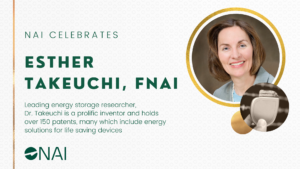 Original interview recorded in March of 2022.
Original interview recorded in March of 2022.
What made you decide on your field of study?
“I once heard an interview of the actor Will Smith and he said something that resonated with me: ‘If you stay ready, you do not need to get ready.’ This phrase speaks to the importance of perpetual learning, continued growth, and staying at the top of your own field. I tell students that it is difficult to predict when opportunities will arise as that is outside of their control. What they can address is their own preparation, rather they should prepare themselves for opportunities should they arise. Their preparation also positions them to actively pursue new opportunities as they are ready to take them on.
In my own case, after graduate school my (now) husband and I wanted to co-locate our jobs. This led me to select a postdoctoral position with a well know faculty member, but outside of my own Ph.D. study in organic chemistry. This willingness to take on a new learning opportunity introduced me to the field of electrochemistry. The background in electrochemistry that I gained led me to pursue the field of electrochemical energy storage.
I spent 20 years in industry where I was able to lead the research effort on the development of the battery for the implantable cardiac defibrillator (ICD). There was a desperate need for the battery as the device had been demonstrated, but a battery with the needed requirements did not exist. The introduction of the lithium/silver vanadium oxide battery enabled the widespread adoption of ICDs. We continued to reinvent new generations of the battery and those are the topics of many of my >150 patents. ICDs are a successful therapy for heart arrhythmias and have saved millions of lives.
I transitioned to an academic position to mentor the next generation of scientists and engineers as well as pursue a broader array of research topics. Our research on energy storage now includes new generations of batteries for electric vehicles and large scale batteries to enable integration of wind and solar power with the electric grid. Recently developed characterization methods include operando studies where we can now monitor batteries as they are working make this field even more exciting. My path was made possible by continually learning and growing, being prepared for opportunities, and willingness to take on new challenges.”
To read more about Dr. Takeuchi and her work, visit: https://ow.ly/oCkW50QLYj9